-
Search -
Accessibility -
Members Login
Our work
The United Nations Climate Change Conference (UNFCCC) commonly known as the Conference of Parties (COP28) will take place in Dubai, United Arab Emirates (UAE) from 30 November to 12 December 2023. Find all the details and updates on the official UNFCCC website and the UAE Presidency website.
ICVA members will be engaged in the discussions and negotiations at COP28. See below some of the key advocacy messages and resources from the Inter-Agency Standing Committee (IASC) and other stakeholders.
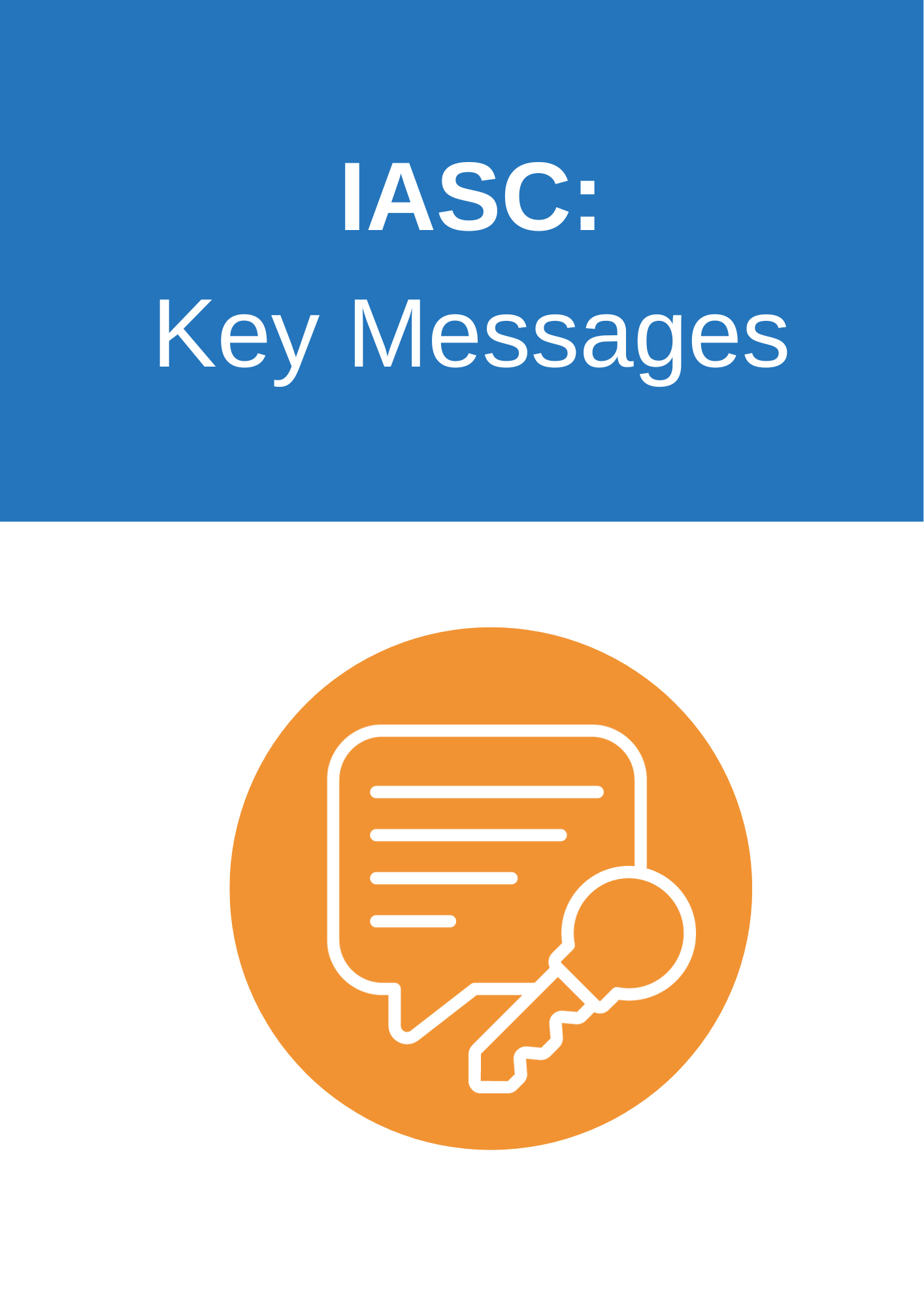
The key messages, derived from the IASC Action Plan for Engagement in COP28, have undergone extensive consultation with both IASC and non-IASC members. These documents aim to assist humanitarian organizations in coordinating their advocacy efforts at COP28, ensuring a unified and consistent message with key stakeholders.
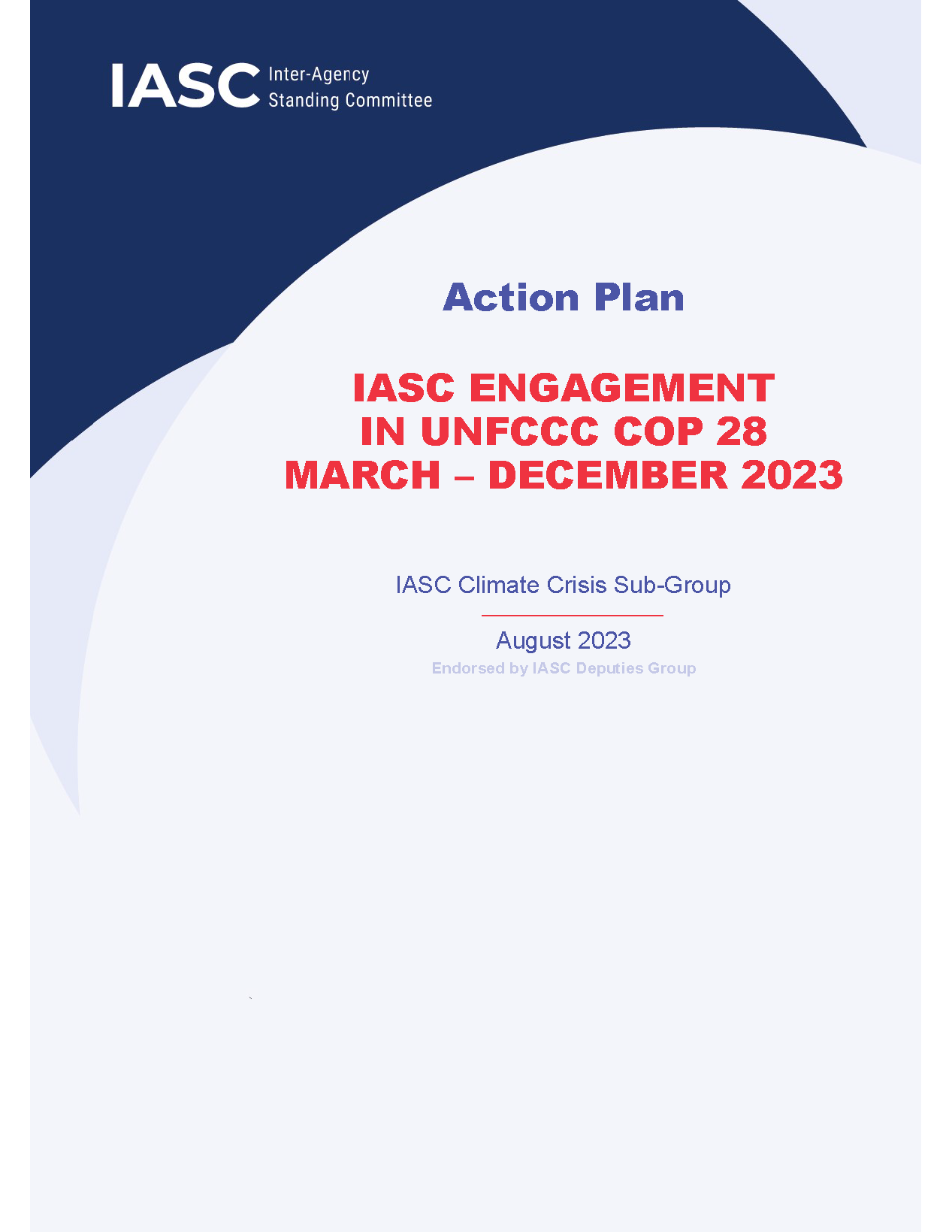
Click on the below link to read the Action Plan.
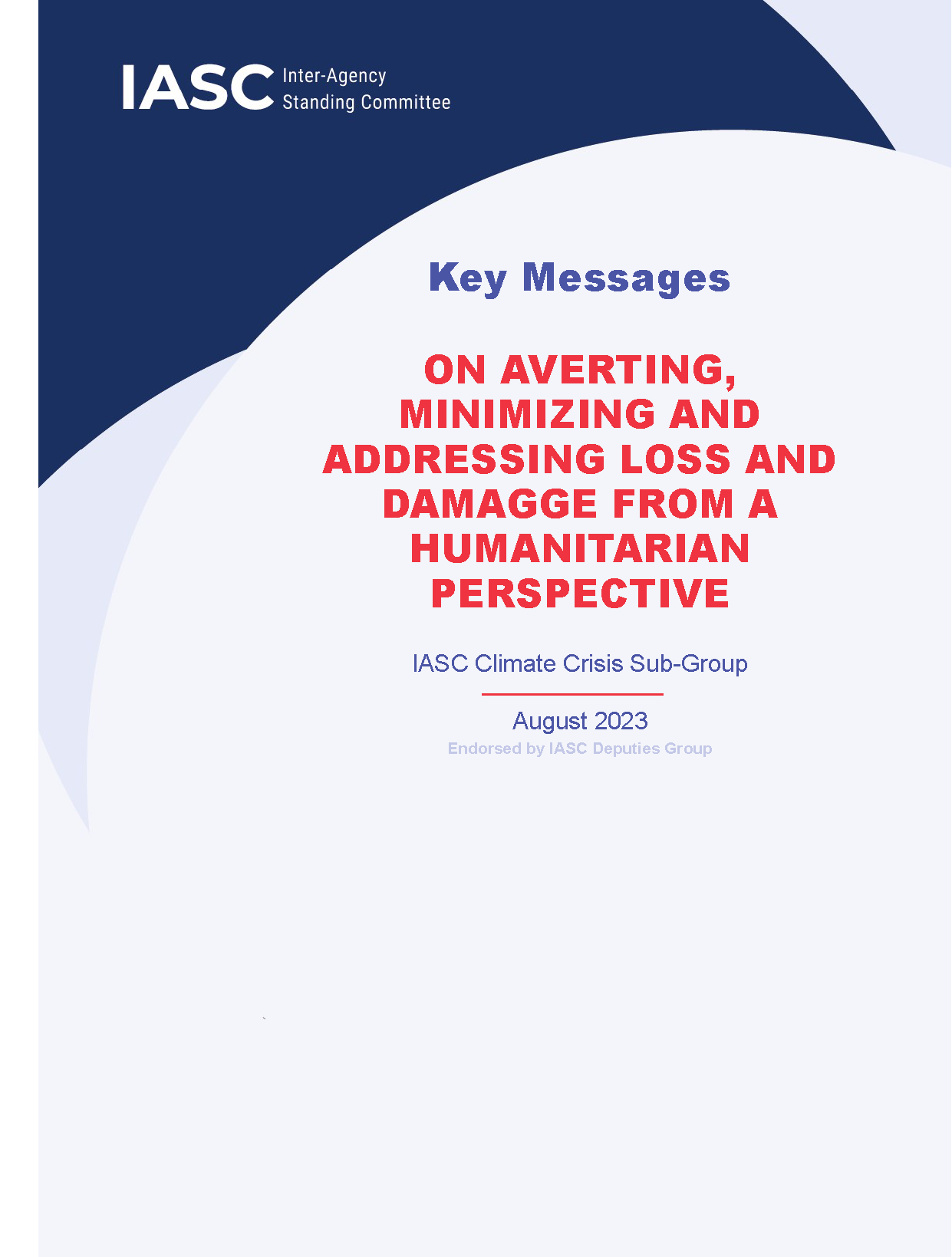
A document to guide IASC members in their external advocacy and communications efforts around loss and damage from climate change.
Click on the below link to read the document.
In light of the 28th UN Climate Change Conference and the first Global Stocktake under the Paris Agreement, urgent action must be taken to enhance climate resilience, particularly in highly vulnerable communities and countries threatened by fragility, conflict, and severe humanitarian needs. The collective effort should focus on building resilience at the necessary scale and speed, prioritising Least Developed Countries and Small Island Developing States.
The Declaration is open to endorsements, and submissions of commitments to the Package of Solutions are welcome through email address climate.reliefrecoverypeace@cop28.com, before 29 November. The document contains a list of frequently asked questions along with the event schedule for 3 December.
Access the Declaration and Package of Solutions document below.
This initiative is led by the UAE COP28 Presidency, and the Risk Informed Early Action Partnership (REAP).
The Charter sets out principles for collaborative action to ensure better use of finance to manage risks and protect people in the most vulnerable countries from climate-related disasters. For more information, check out the website to submit your commitments https://gettingaheadofdisasters.org or you can contact reap.secretariat@ifrc.org and climate.reliefrecoverypeace@cop28.com.
COP27 was held in Sharm el-Sheikh, Egypt, from 6 – 18 November. Access more information here.
ICVA members were engaged in the discussions and negotiations at COP27. See below some of the key advocacy messages and resources from ICVA and other stakeholders.
Under the Thematic days, a dedicated Civil Society Day on 15 November took place to engage Civil Society views and perspectives are integrated.
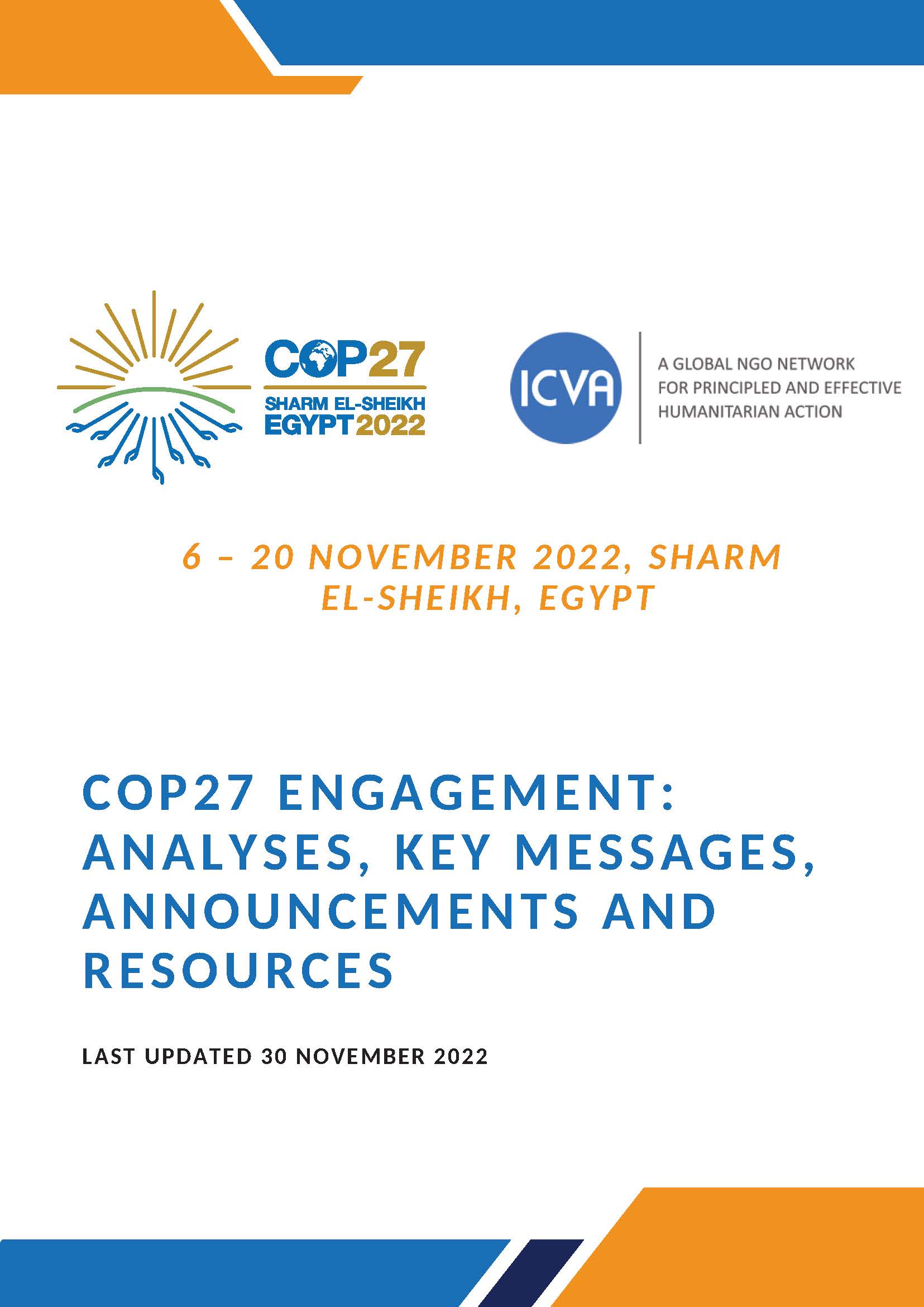
ICVA has compiled a list of resources around COP27 which took place from 6 to 20 November 2022 in Sharm el-Sheikh, Egypt. The document attempts to capture the information on COP27 that is relevant to the humanitarian sector. ICVA will continue to engage with members and partners on how humanitarian NGOs can share lessons learned with the various processes as we head towards COP28.
The United Nations Climate Change Conference, commonly referred to as COP26 was held at the SEC Centre in Glasgow, Scotland, United Kingdom from 31 October 2021 to 13 November 2021. During this conference more countries announced pledges to go carbon neutral, developed nations committed to increase funding to help low- and middle-income countries deal with damaging climatic effects, and world leaders promised to report their progress on emissions cuts every year.
ICVA members were engaged in the discussions and negotiations at COP26. See below some of the key advocacy messages and resources from ICVA and other stakeholders.
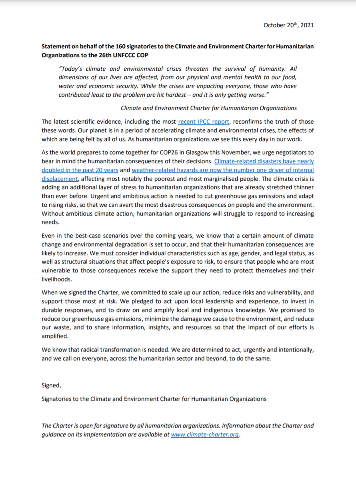
English Statement on behalf of signatories to the Climate and Environment Charter for Humanitarian Organisations.
The Civil7 Summit took place on 4-5 May 2022 in Berlin in preparation for the G7 Summit in Germany held on 26 – 28 June. You can find links to:
This learning stream provides a platform for the broader humanitarian community to better understand how we can reduce our impact of climate change by accelerating action and increasing environmental sustainability. The series focuses on practical ways of applying the Climate and Environment Charter for Humanitarian Organisations and sharing lessons learned on how the commitments can be translated into practice.
Topics covered in this webinar series include:
To watch the webinars and for more information click here.
Climate change is an existential threat that is already completely altering the work we do as humanitarian NGOs, and the lives of the people we support. ICVA engages through our selected work areas, working in collaboration and drawing on the wealth of knowledge and experience of ICVA members and our partner networks. We commit to creatively explore how the humanitarian, development and climate communities can work together to shape policy, increase resilience, improve practice, and secure resourcing for climate related humanitarian crises.
The pledge on “Strengthening the resilience of communities to climate change and environmental degradation through climate-smart humanitarian action”, made at the 33rd International Conference of the Red Cross and Red Crescent by the IFRC and the ICRC led to a consultative process to develop a new, succinct, accessible and aspirational Climate and Environment Charter that is open to the wider humanitarian sector for adoption in the spirit of the Code of Conduct of 1994.
ICVA is a core part of the Advisory Committee to the Climate and Environment Charter which included a number of humanitarian and climate actors.
The Advisory Committee to the Climate and Environment Charter developed a series of short and clear commitments that could guide our efforts as humanitarians in relation to limiting the impacts of climate change and environmental degradation on communities and reducing our own footprint. ICVA together with the ICRC, IFRC and the Advisory Committee conducted consultations on the draft of the Charter.
The Charter includes seven high-level commitments to guide the sector’s response to the climate and environment crises. These commitments will only be possible by embracing local leadership, increasing the capacity to understand climate and environment risks, and working together across and beyond the sector to mobilise even more ambitious climate action.
ICVA is a Signatory to the Charter and will continue our commitment in engaging on this theme through the “Commitment and Motion to Action” on Climate and Environment adopted by ICVA members at the General Assembly on 18-19 May 2021.
The Humanitarian aid donor’s declaration on climate and environment was officially validated by the European Union at the European Humanitarian Forum. The document promotes a humanitarian response system that prevents, prepares, anticipates and responds to climate and environment challenges. It complements the Statement of Commitment on Climate by Humanitarian Organizations (2020), signed by 10 organizations, and the Climate and Environment Charter for Humanitarian Organizations (2021), now signed by over 220 organizations (as at 12 April 2022).
ICVA was part of a project led by the ICRC that developed the Humanitarian Carbon Calculator (HCC). Humanitarian organisations can use this free tool and accompanying videos and user guide to estimate their greenhouse gas (GHG) emissions (carbon footprint); the methodology used is both specific to the humanitarian sector and follows an international standard (GHG Protocol).
ICVA is a member of the expert roundtable working together to address obstacles to climate finance in conflict and fragile settings. The roundtable has been meeting bi-monthly and will focus on identifying why gaps and shortfalls in climate finance exist, the consequences of these shortfalls, and on proposing practical ways to unlock climate finance for populations that are particularly vulnerable to climate risks. This policy dialogue will provide a neutral, non-political space for expert discussions on ensuring that climate finance leaves no one behind.
If you would like to know more about this initiative, please contact Nishanie Jayamaha nishanie.jayamaha@icvanetwork.org.
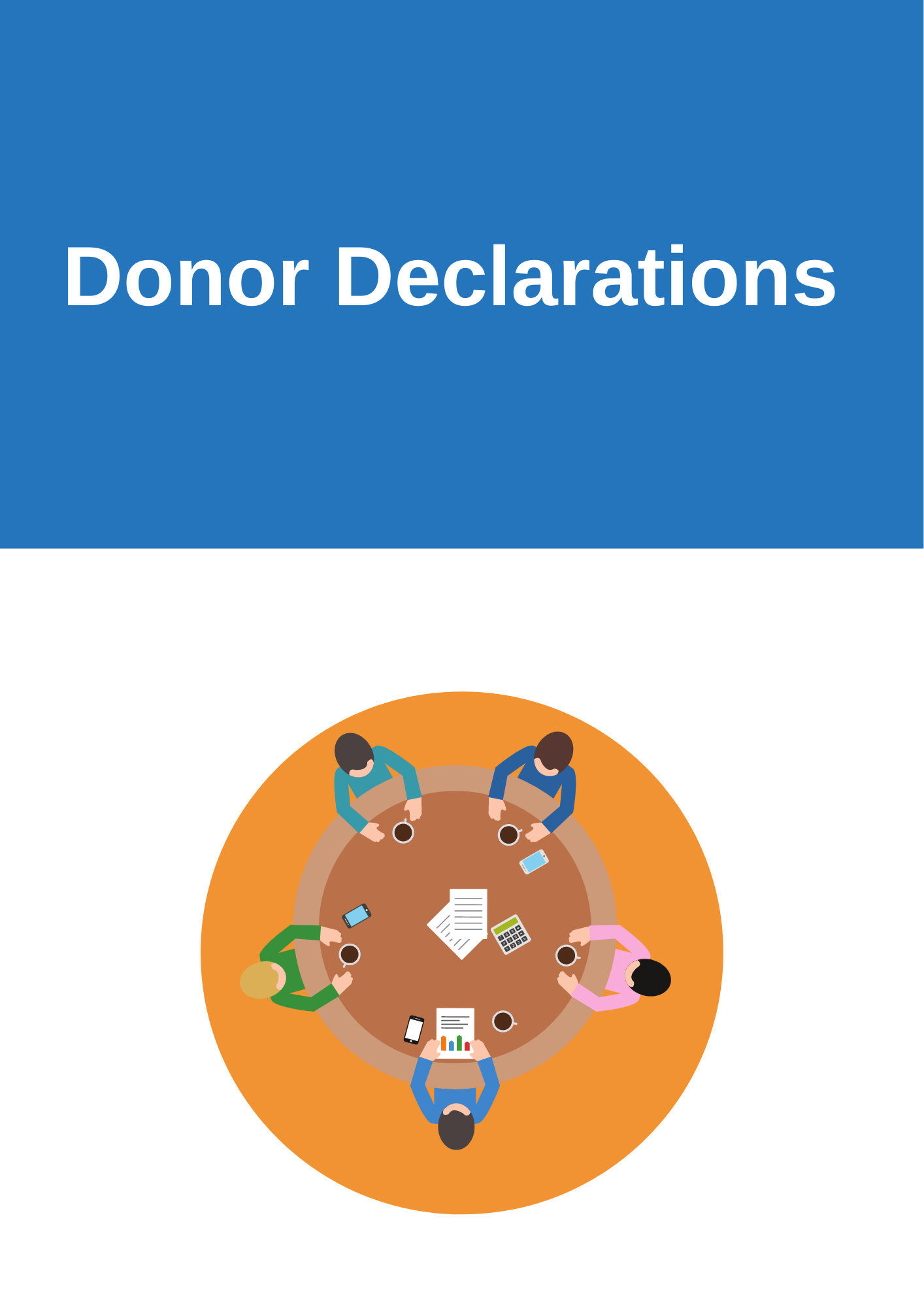
A commitment to invest more to prevent, prepare for, anticipate and respond to disasters, as well as to improve cooperation and partnerships between stakeholders, and increase efforts to reduce the environmental impacts of humanitarian action.

Issie is an advocacy and communications specialist with a focus on ensuring documented policy outcomes for the protection of displaced populations globally. Joining ICVA in November 2024, Issie brings over eight years’ experience engaging diverse stakeholders, across crises and contexts, for the promotion of International Humanitarian Law, principled humanitarian access, and civilian protection from violence. Prior to ICVA, Issie was leading Action Against Hunger’s advocacy and communications in the occupied Palestinian territory.
As part of ICVAs Forced Migration team, Issie supports members in their work to ensure people are protected, and can access timely, quality and sustainable assistance and solutions.
Issie holds a master’s degree from the London School of Economics and Political Sciences in International Development and Humanitarian Emergencies.
ICVA has compiled a compendium comprising of existing resources, guidance and tools on building resilience, risk analysis, adaptation, environment sustainability, Nature-based Solutions (NbS), mitigation, among others. The aim is to promote knowledge exchange and share existing resources and learning. Through this compendium, ICVA intends to capture the work that is already being done, to share it as widely as possible, and to inspire others to action. Resources in the compendium are organized by categories and keywords.
To improve and keep it up to date with new initiatives and solutions, we will keep reaching out to various organizations.
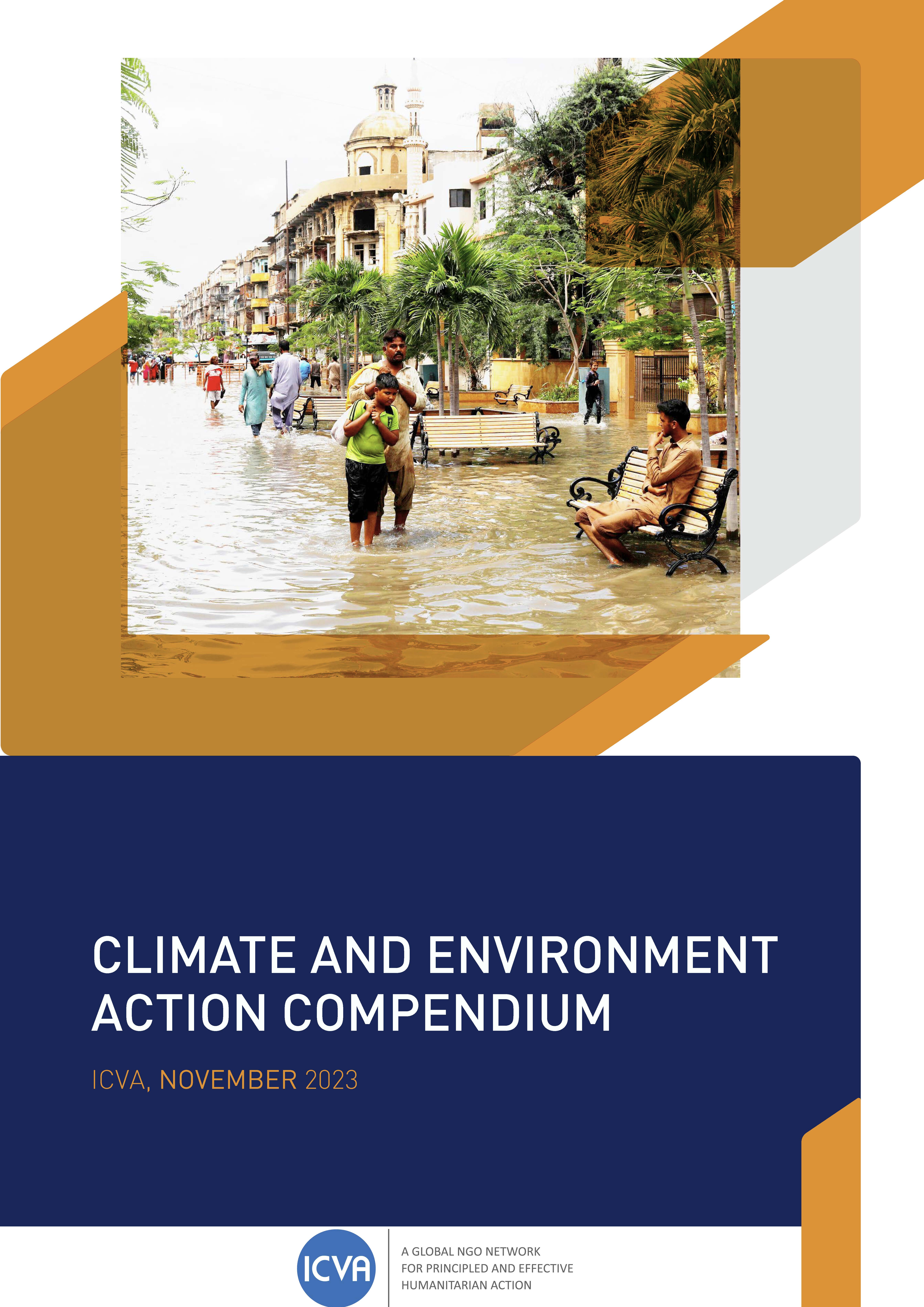
ICVA has created a compendium comprising of existing resources, guidance and tools on building resilience, risk analysis, adaptation, environment sustainability, Nature-based Solutions (NbS), mitigation, among others. The aim is to promote knowledge exchange and share existing resources and learning. Through this compendium, ICVA intends to capture the work that is already being done, to share it as widely as possible, and to inspire others to action. Resources in the compendium are organized by categories and keywords. To improve and keep it up to date with new initiatives and solutions, we will keep reaching out to various organizations.
This guidance provides information on why environmental responsibility is important for humanitarian organizations and how they can take action to reduce their environmental footprint. It outlines key elements of existing environmental management guidance which have been adapted to the particularities of humanitarian organizations.
The guidance places a focus on senior management and their role in mainstreaming environmental considerations throughout the organization. It also provides practical advice for project planners aiming to maximize the environmental sustainability of humanitarian programmes and projects.
The document includes example boxes, further reading lists, links, tools, glossary definitions and supplementary information in its annex for reference.
Read the Guidance below.
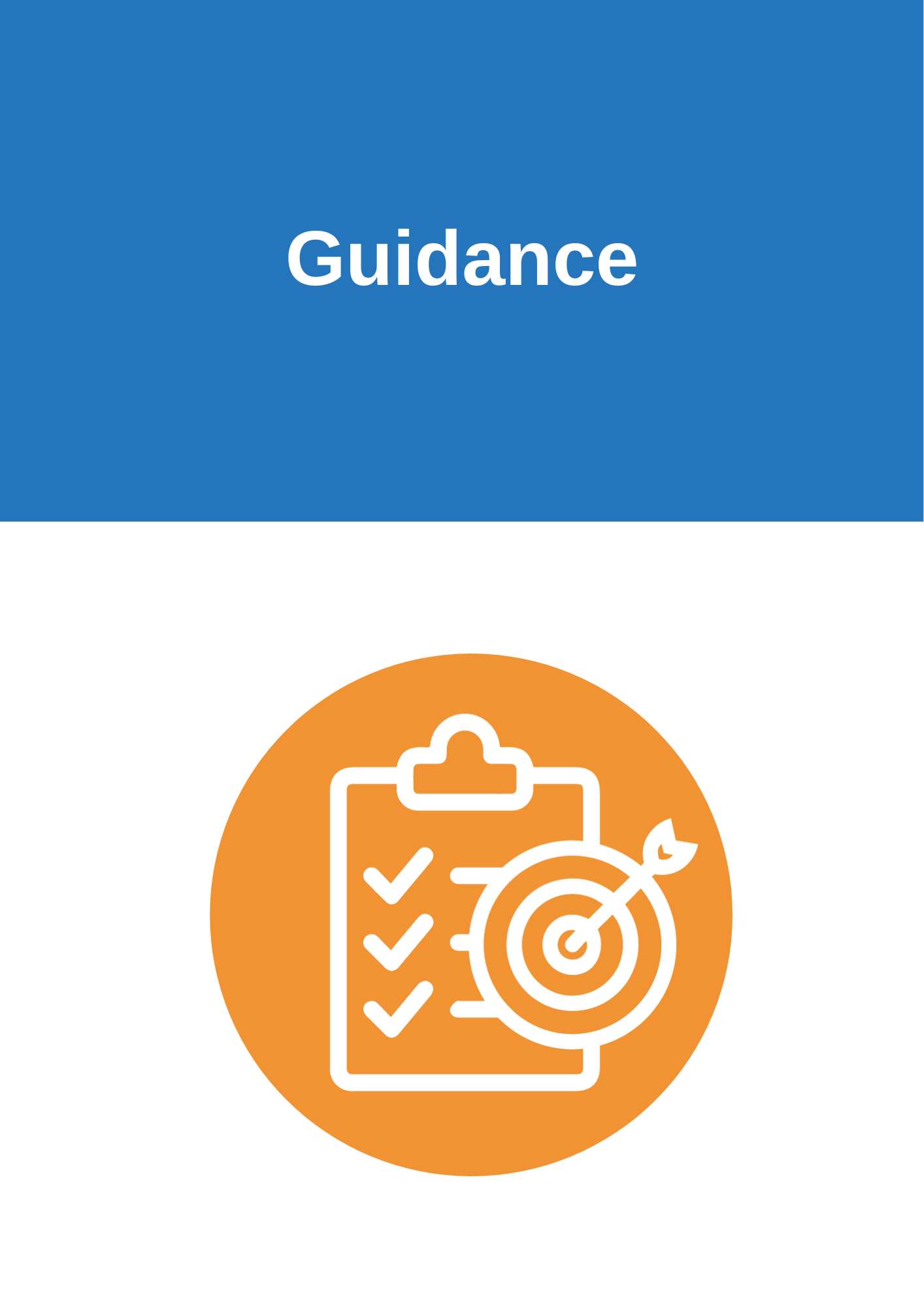
The Guidance outlines the importance of environmental responsibility in humanitarian action and how to improve environmental sustainability within humanitarian organizations. It includes adapted elements of existing environmental management guidance, such as ISO 14001, to reflect the particulars of humanitarian organizations and their operations.
Click on the link below to read the Guidance.
The paper focuses on the political will needed for the international community to step out of its comfort zone when it comes to channelling climate finance for climate-change adaptation. Current mechanisms are characterised by low risk appetites, cumbersome technical and procedural requirements, inflexibility of scales, siloed structures that inhibit collaboration across conflict and climate expertise, and the inability to optimise the expertise and access of organisations across different sectors. It offers recommendations on how to address these challenges in concrete terms, with examples of good practice on which progress might build.
The paper is jointly issued by the International Committee for the Red Cross, ODI, the International Council of Voluntary Agencies, MercyCorps, Red Cross Red Crescent Climate Centre, World Food Programme and United Nations High Commissioner for Refugees.
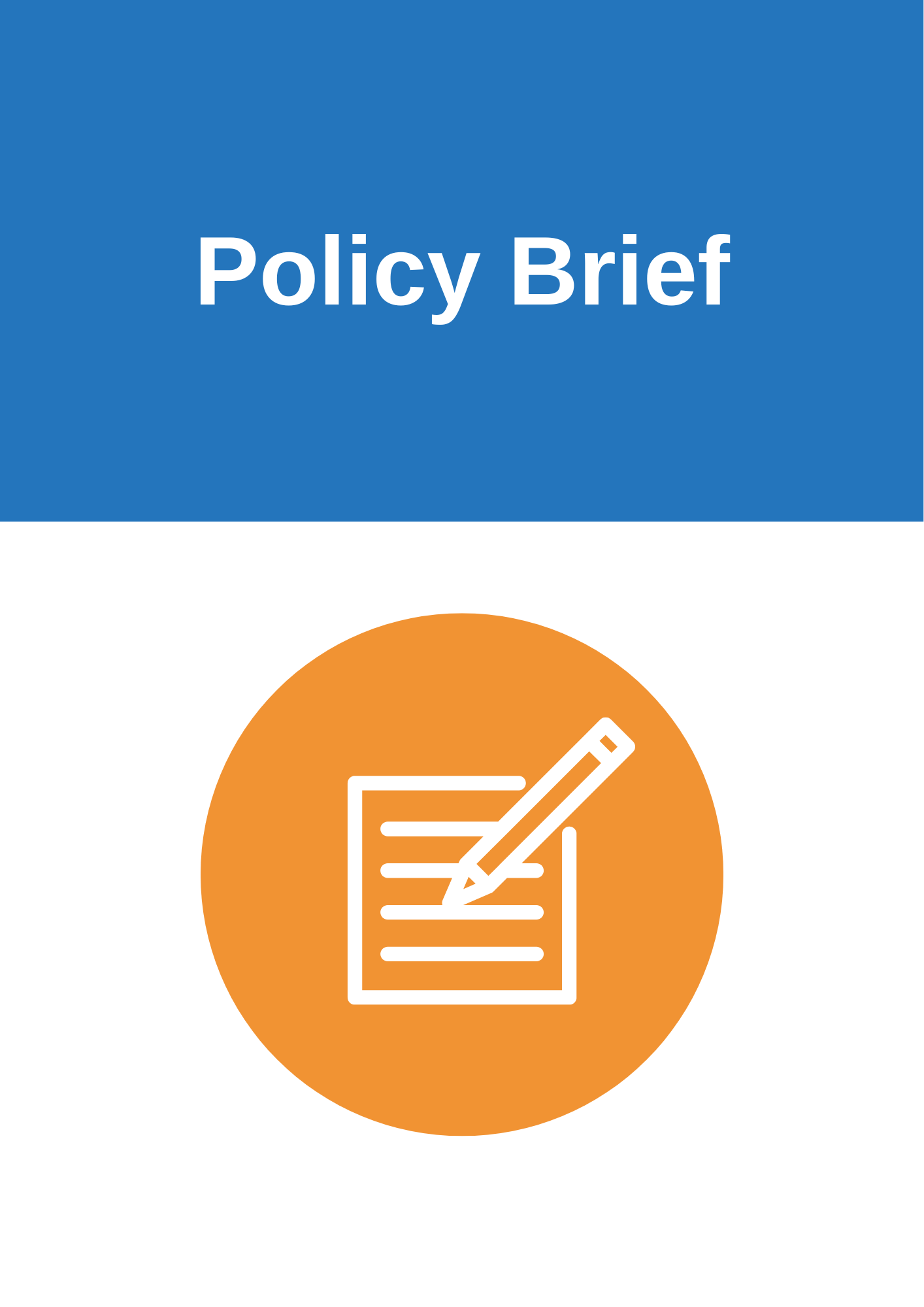
The paper focuses on the political will needed for the international community to step out of its comfort zone when it comes to channelling climate finance for climate-change adaptation. Current mechanisms are characterised by low risk appetites, cumbersome technical and procedural requirements, inflexibility of scales, siloed structures that inhibit collaboration across conflict and climate expertise, and the inability to optimise the expertise and access of organisations across different sectors. It offers recommendations on how to address these challenges in concrete terms, with examples of good practice on which progress might build.
The paper is jointly issued by the International Committee for the Red Cross, ODI, the International Council of Voluntary Agencies, MercyCorps, Red Cross Red Crescent Climate Centre, World Food Programme and United Nations High Commissioner for Refugees.
The report was commissioned by DG ECHO through Groupe URD.
The mapping initiative is aimed to provide concise and comprehensive analysis of the support available to the Charter signatories, with a particular focus on:
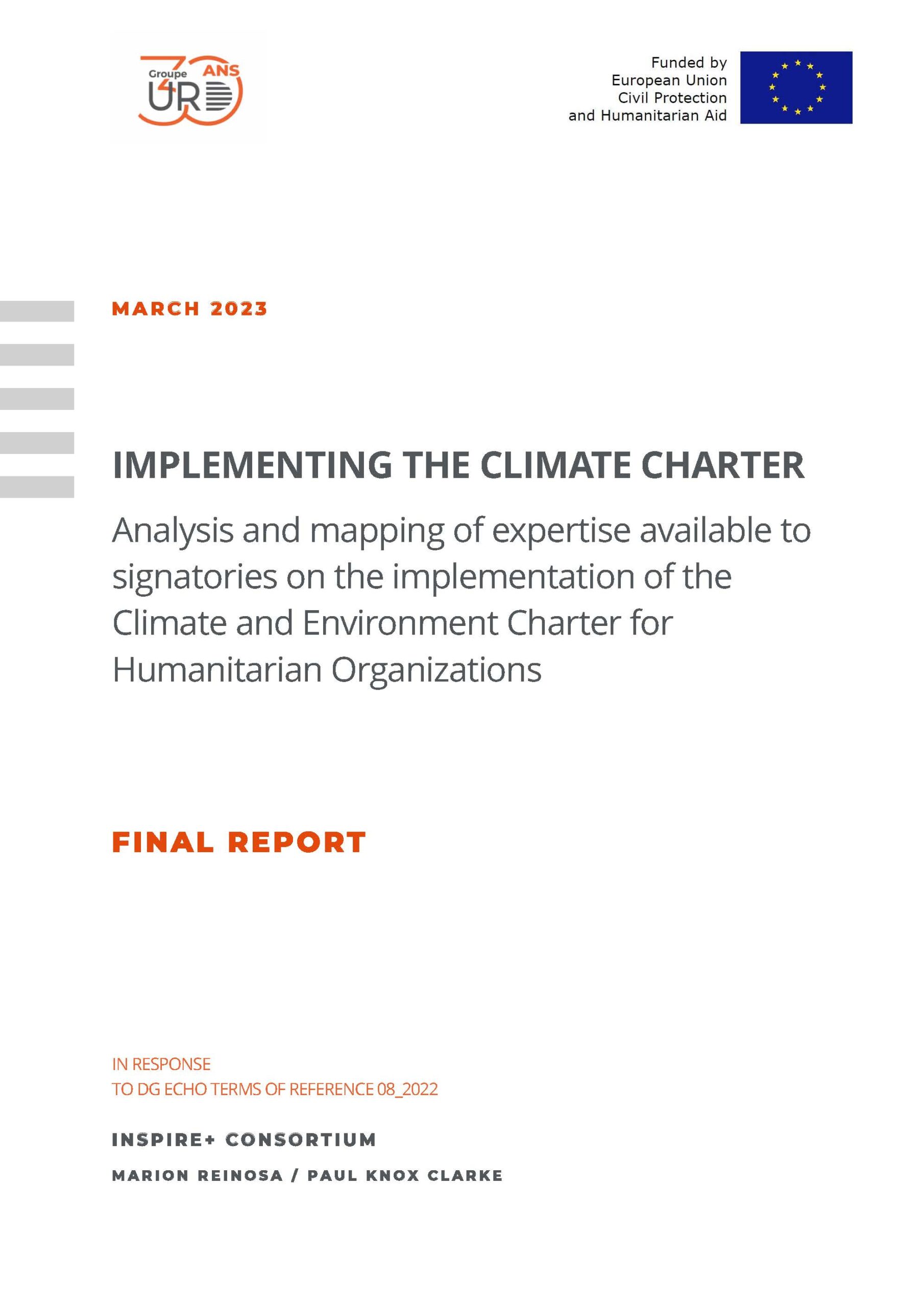
The report “Implementing the Climate Charter: Analysis and mapping of expertise available to signatories on the implementation of the Climate and Environment Charter for Humanitarian Organisations” was commissioned by DG ECHO through Groupe URD.
A list of useful resources from ICVA and PHAP webinars on Climate Change and Humanitarian Action Learning Stream.
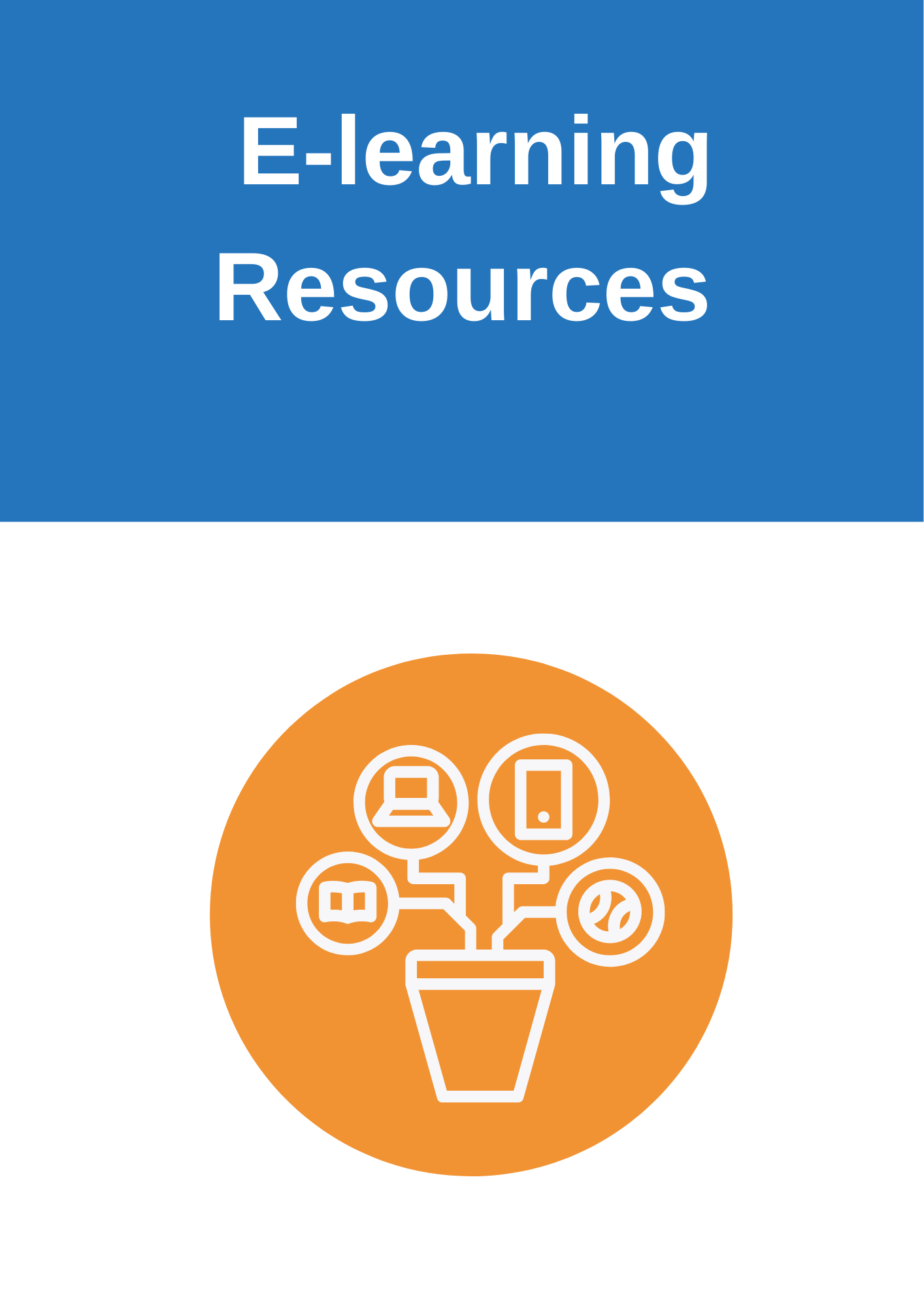
Check out useful resources and further reading related to Topic 7 – Understanding Climate Change Loss and Damage and links to Humanitarian Action
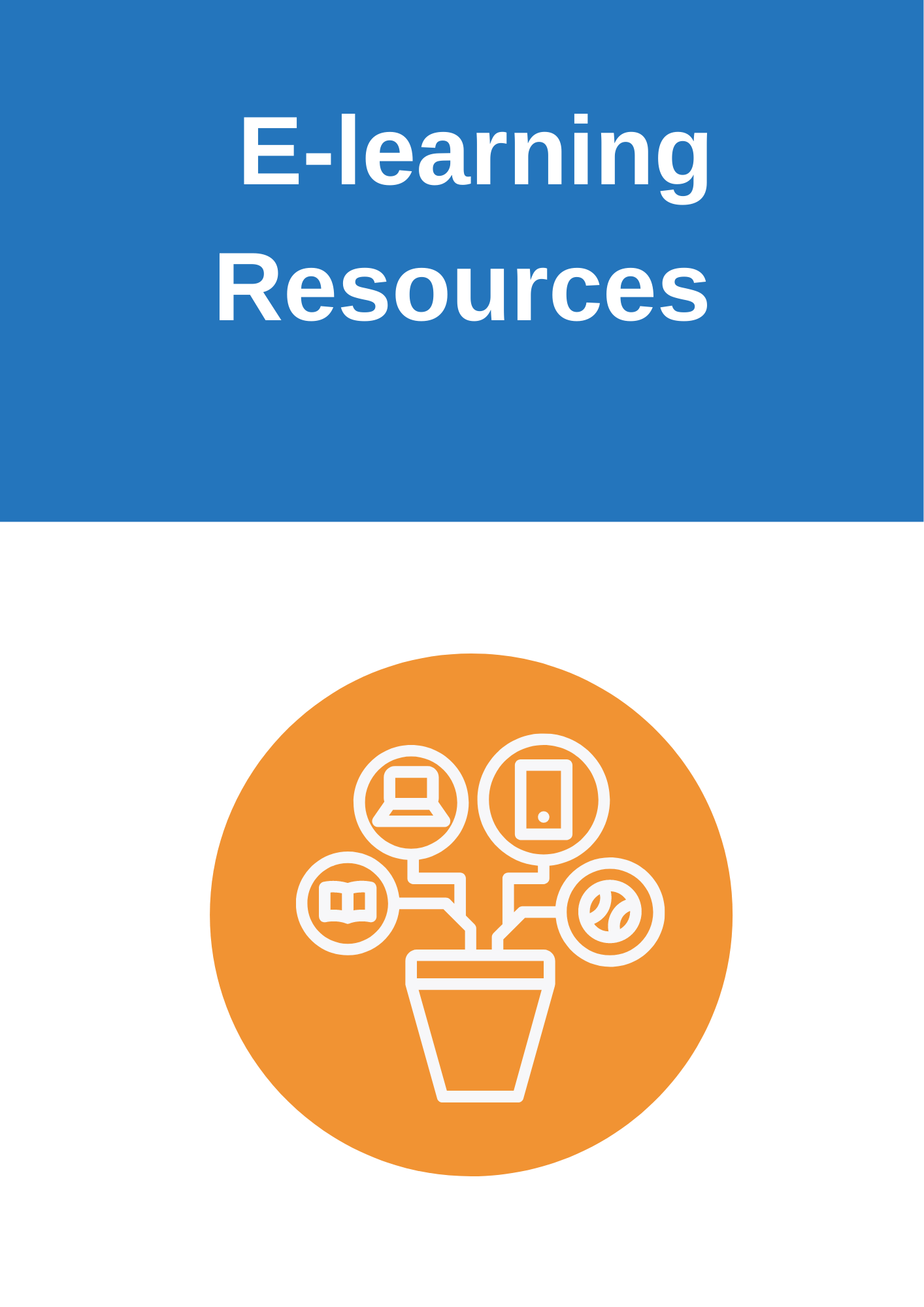
Check out useful resources including event polls and PowerPoint presentations around Commitment 6 of the Climate and Environment Charter.

Check out useful resources around Commitment 4 of the Climate and Environment Charter.

Useful resources on embracing the leadership of local actors and communities in climate action.
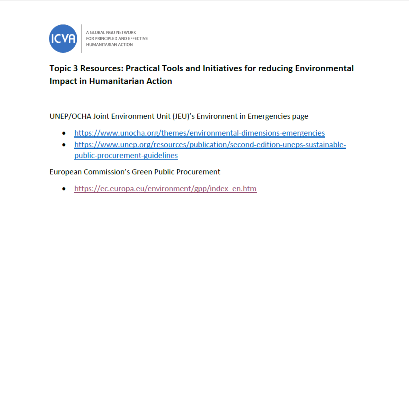
Useful resources on practical tools and initiatives for reducing environmental impact in humanitarian action.
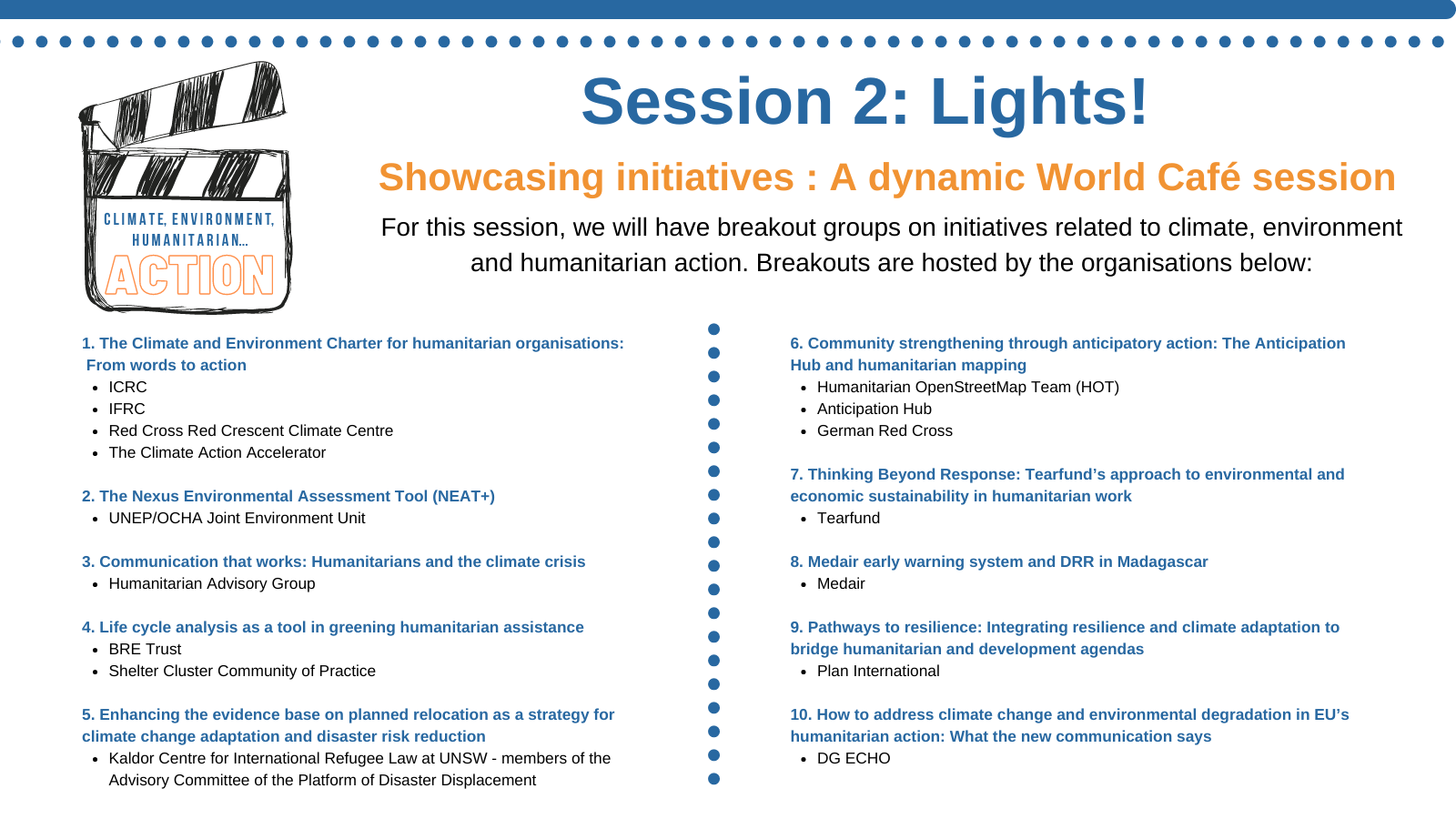
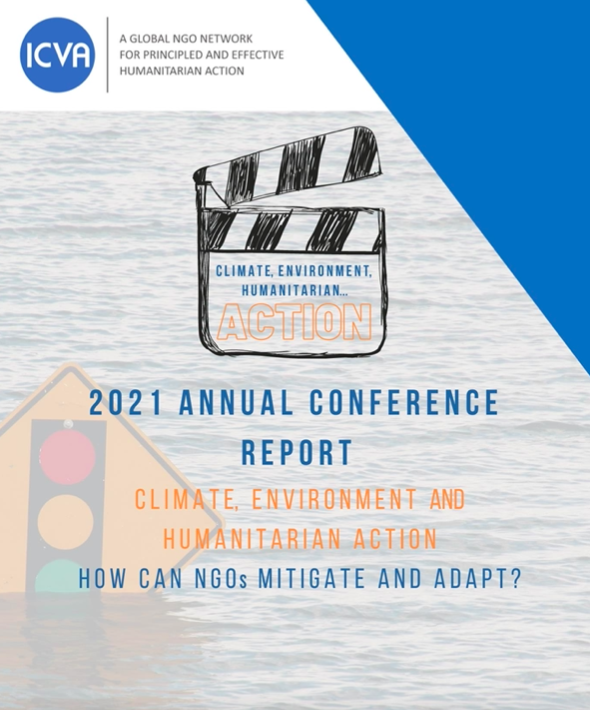
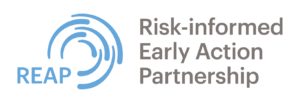
ICVA has joined the Risk-informed Early Action Partnership (REAP). Through this partnership ICVA members have access to a global network of expertise to support their work across the full value chain of Early Warning Early Action interventions. The partnership will enable and facilitate the exchange of knowledge and solutions and fosters greater collaboration, including new partnerships, by bringing together the capacities and unique capabilities of the climate, development, hydrometeorological and humanitarian communities.
REAP represent donor and climate-vulnerable countries, UN and other major international organizations, civil society, and the private sector.

ICVA has joined the Anticipation Hub which was launched in December 2020 as a platform facilitating knowledge exchange, learning, guidance, and advocacy around anticipatory action both virtually and in-person. Anticipation Hub’s priorities are to stimulate knowledge exchange and learning, provide guidance and support and promoting policy and advocacy through active engagement in global initiative and events. Their vision, aims and values are further detailed in their 3-year strategy.
Background:
The Anticipation Hub is a joint initiative between the German Red Cross (GRC), the International Federation of Red Cross and Red Crescent Societies (IFRC) and the Red Cross Red Crescent Climate Centre. The Anticipation Hub brings together 97+ partners across the Red Cross Red Crescent Movement, universities, research institutes, NGOs, UN agencies, governments, donors, and network initiatives.
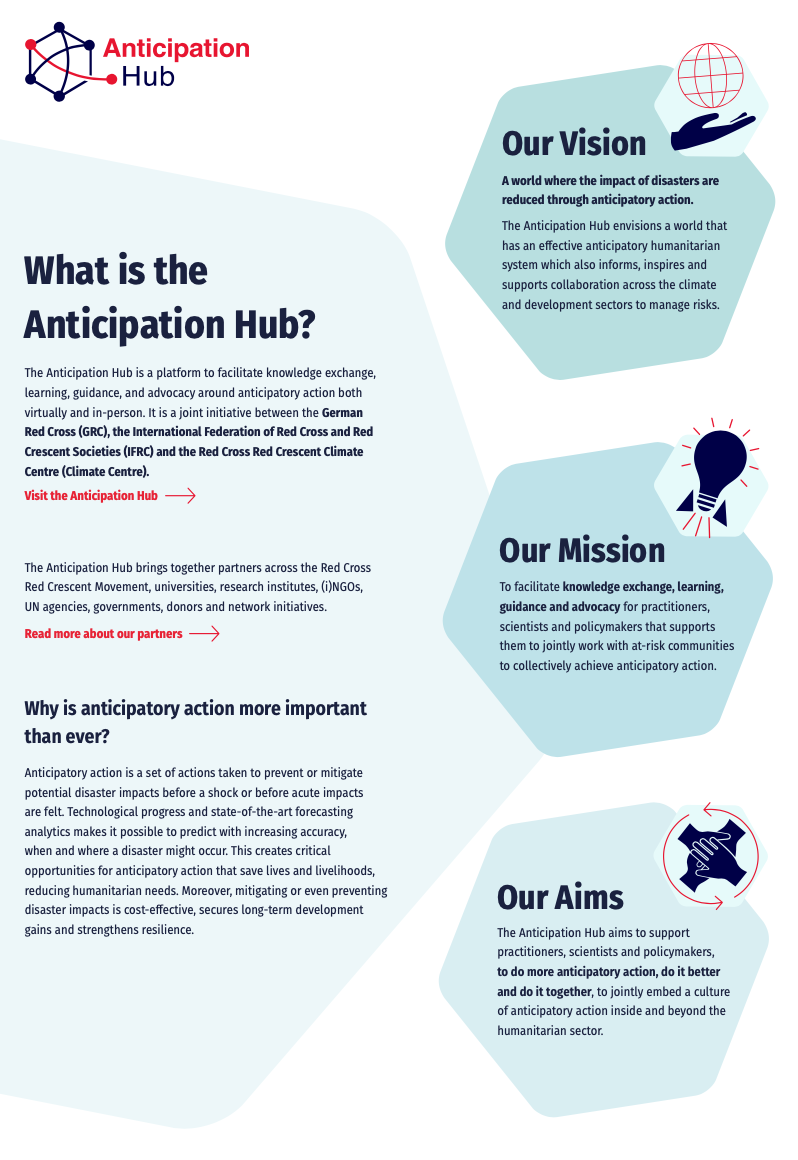
The Anticipation Hub is a platform to facilitate knowledge exchange, learning, guidance, and advocacy around anticipatory action both virtually and in-person.
ICVA is a Signatory to the Climate and Environment Charter. We will continue our commitment in engaging on this theme through the Commitment and
Motion to Action on Climate and Environment adopted by ICVA members at the General Assembly of 18-19 May 2021.
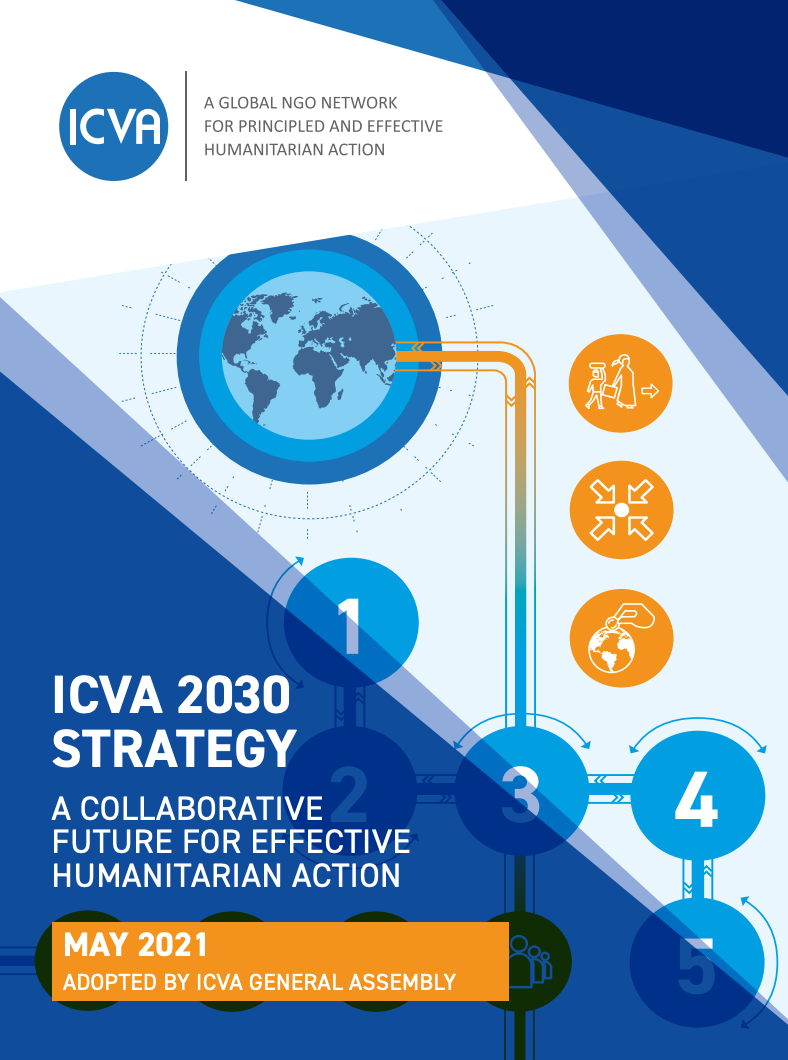
This document sets the framework for the direction and focus of ICVA’s work from 2022-2030, as we evolve and transform our network. Rooting us more deeply in our mission of principled and effective humanitarian action, this strategy sets our collective values, our ways of working and our aspirational transformations. We will continue to work on focus areas which to best serve our members and the sector as a whole. Our added value is rooted in our work explaining & analysing, convening, brokering, influencing & advocating, supporting and collaborating.
This strategy was adopted by members at the 18th General Assembly in May 2021.
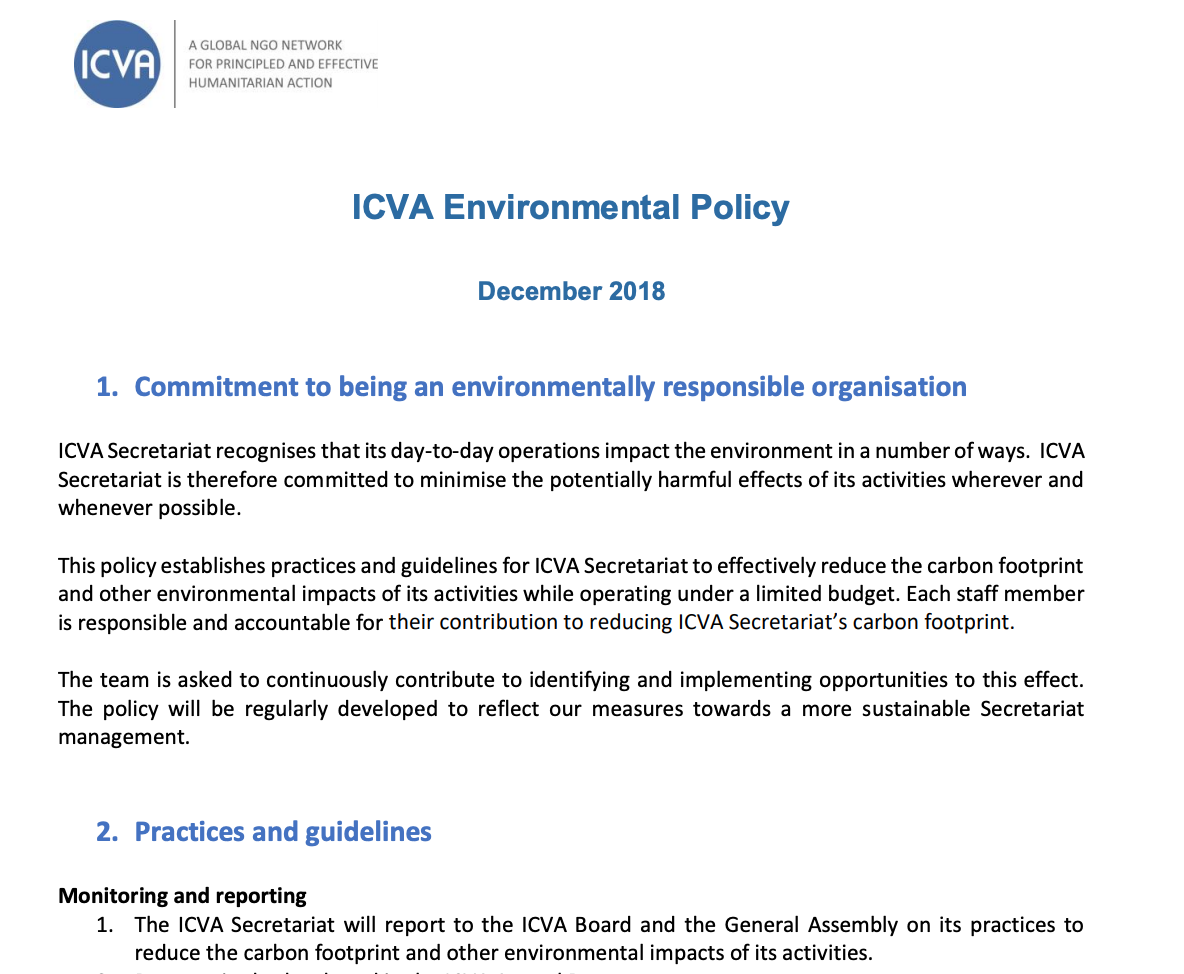
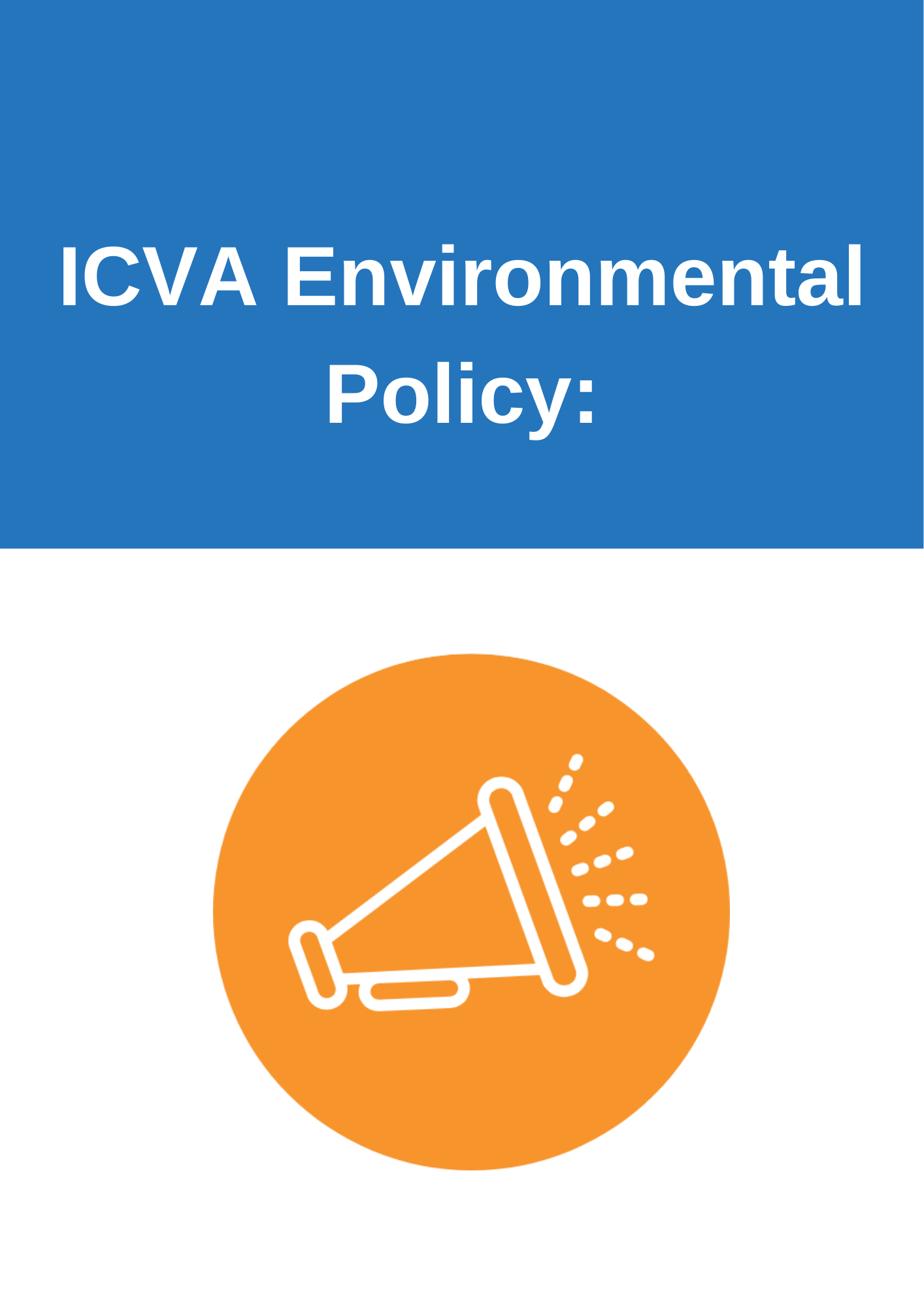
The revised policy establishes practices and guidelines for ICVA Secretariat to effectively reduce the carbon footprint and other environmental impacts of its activities while carrying out its operations.
For more information on the Climate and Environment Charter or to join ICVA’s Climate and Environment working group, contact: nishanie.jayamaha@icvanetwork.org.

ICVA is a global network of non-governmental organisations whose mission is to make humanitarian action more principled and effective by working collectively and independently to influence policy and practice.
International Council of Voluntary Agencies
NGO Humanitarian Hub,
La Voie-Creuse 16, 1202, Geneva, Switzerland
Email: secretariat@icvanetwork.org
A curation of monthly updates, latest news, tools, and events around forced migration, coordination, financing, and cross cutting issues all sent straight to your inbox.